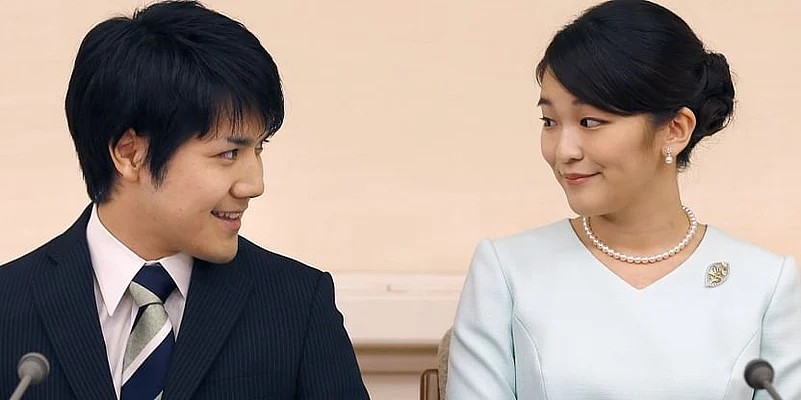Japanese Princess Mako quietly married a commoner Kei Komuro on Tuesday without following any traditional wedding celebrations. The much debated marriage to a commoner cost Mako her royal status and she has taken her husband's surname which gave her a family name for the first time. Most Japanese women are under the obligation to abandon their own family names upon marriage due to a law requiring only one surname per married couple.
Who Is Princess Mako?
Mako, who turned 30 three days before the marriage, is a niece of Emperor Naruhito. She and Komuro, who were classmates at Tokyo's International Christian University, announced in September 2017 that they intended to marry the following year, but a financial dispute involving his mother surfaced two months later and the wedding was suspended.
Who did Princess Mako Marry?
Komuro, 30, left for New York in 2018 to study law and only returned to Japan last month. His hair was tied in a ponytail at the time and the look drew attention as a bold statement for someone marrying a princess in the tradition-bound imperial family and only added to the criticism.
Why is Princess Mako losing her royal status?
Mako's loss of royal status comes from the Imperial House Law, which allows only male succession.
Only male royals have household names, while female imperial family members only have titles and must leave if they marry commoners. The example of prewar-era paternalism is also reflected in Japanese gender policies that many criticize as outdated, including a law that requires married couples to use only one surname, almost always the husband's.
The male-only succession practice leaves only Akishino and his son, Prince Hisahito, in line behind Emperor Naruhito. A panel of government-appointed experts are discussing a stable succession of the Japanese monarchy, but conservatives still reject female succession or allowing female members to head the imperial family.
What is the money related controversy all about?
Mako is recovering from what palace doctors described earlier this month as a form of traumatic stress disorder that she developed after seeing negative media coverage about their marriage, especially attacks on Komuro.
The dispute involves whether money his mother received from her former fiancé was a loan or a gift. Mako's father asked Komuro to clarify, and he wrote a statement defending himself, but it is still unclear if the dispute has been fully resolved.
Mako earlier declined the 140 million yen ($1.23 million) dowry to which she was entitled for leaving the imperial family, palace officials said. She is the first imperial family member since World War II to not receive the payment and chose to do so because of the criticism over her marrying a man some consider unfit for the princess.
On Tuesday morning, the couple's marriage document was submitted by a palace official, the Imperial Household Agency said.
As well as confirming the marriage, the paperwork will mean that, under Japanese law, the princess is no longer a member of the imperial family. She will move out of the palace and into a private apartment to commence a new life.
(With AP Inputs)

























